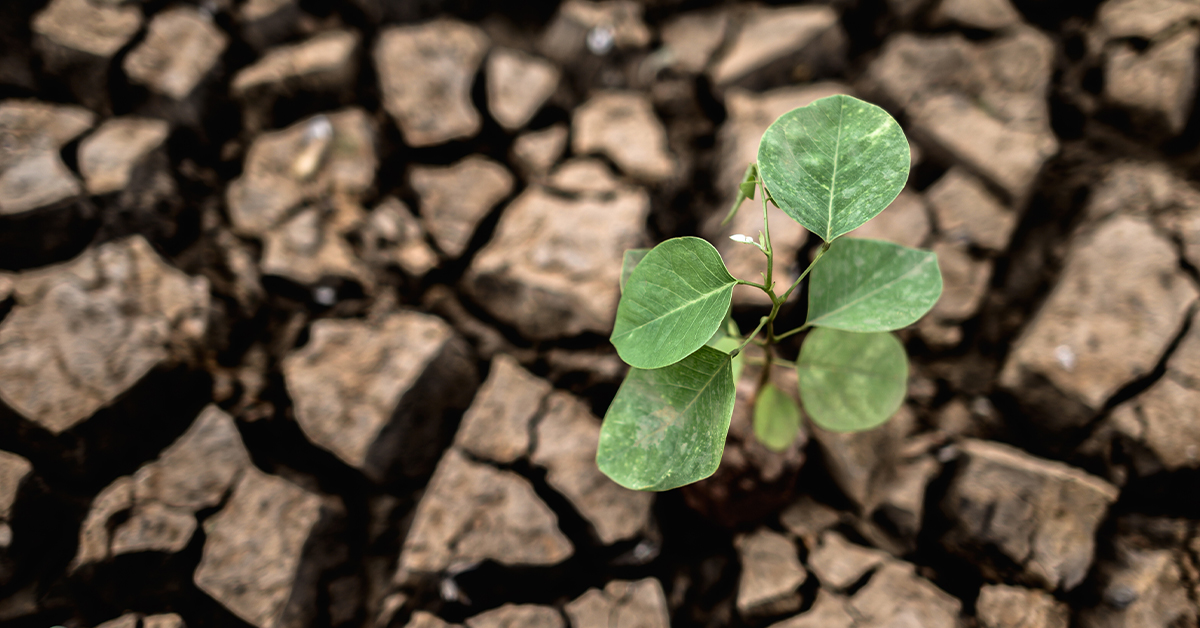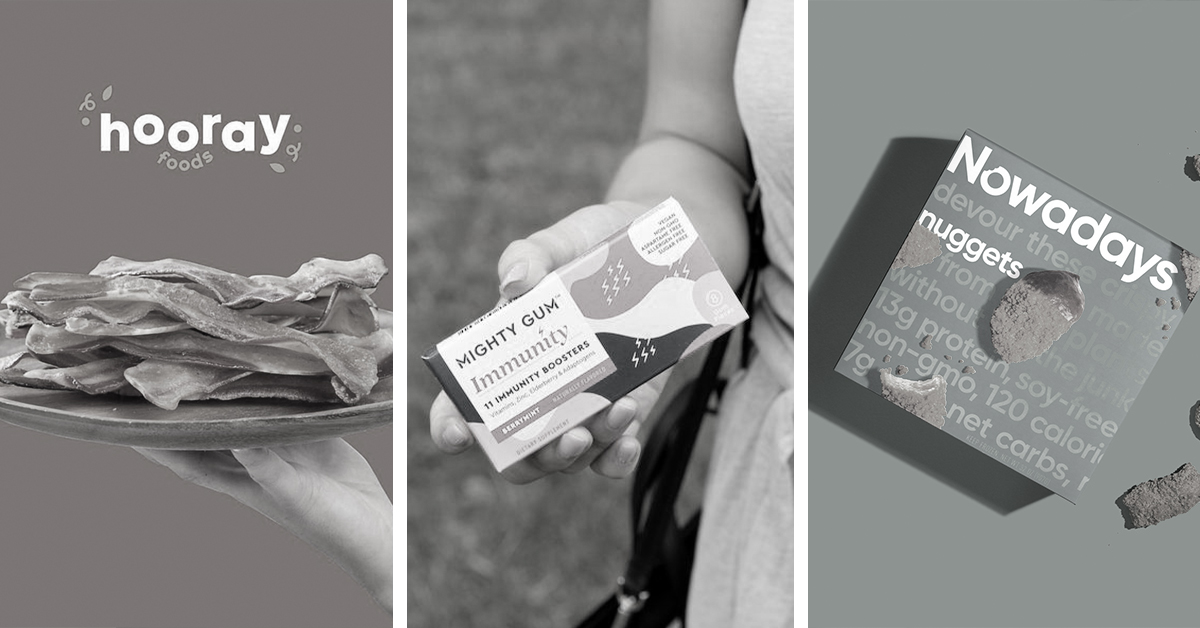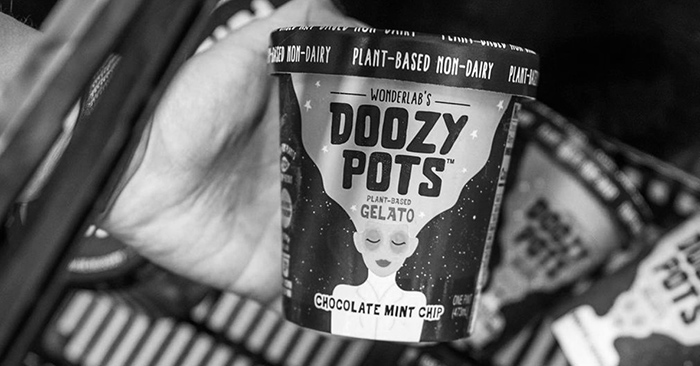‘I Failed, But I’m Not A Failure’: Lessons From Loss

For many founders in the packaged food industry, the lonely and often unforgiving grind of entrepreneurship was compounded by unforeseen challenges over the past few years. Supply chain constraints. Waning consumer demand. Mounting costs. Depressed valuations.
Brands launched in the early days of the pandemic have quietly disappeared from grocery store shelves.
“I never guessed that we would go out of business because we had so much momentum coming out of the gate,” said Sri Artham, founder and CEO of Hooray Foods, which ceased operations this past September. “You build this thing and there’s everyone who is counting on you, from your suppliers, your co-packer, your team… I felt a lot of responsibility to other people to keep the business going, and I did my best.”
Half of startups fail within the first five years, according to the US Bureau of Labor Statistics. Less than a third survive by the end of a decade.
How does a founder know when it’s time to move on? What is the weight of the evidence that signals the experiment needs to end? And what lessons can be extracted on behalf of those still in the trenches?
Cooling Down
Venture capital funding often is viewed as a marker of success, but the pressure to grow quickly can lead to poor decision-making, among other perils. Startups that secured big backing several years ago are now navigating the new realities of a shriveled market.
“If I were to start another food company, I think I would try my best not to go the venture route,” Artham said. “I would try to find something that was break-even much earlier on and that would require less investment or no investment at all in the early days.”
Hooray Foods, based in San Francisco, developed plant-based strips that sizzled, smelled and tasted like bacon using coconut oil, rice flour, maple syrup and beet juice concentrate. The product was sold in more than 1,000 grocery stores, including Whole Foods Market and Wegmans, with plans to launch into Walmart. Restaurants including Fuddrucker’s and Just Salad offered it on the menu.
The marketplace changed dramatically during the four-year lifespan of the company. In the beginning, Artham said, “we were talking to two of the biggest fast-food chains in the world… Investors were reaching out on LinkedIn and offering me money. It was just a totally different world.”
Consumer demand for meat alternatives has cooled considerably. Investor appetite also decreased. Plant-based meat, egg and dairy companies raised $1.2 billion in 2022, down from a record high of $2.1 billion in 2020, according to The Good Food Institute.
“I purposely chose to be VC-backed because of how much capital we needed,” Artham said. “The VC model is a big bet; you’ve put a lot of money in and hope it’s going to take off… You’ve kind of committed to a high-growth model.”
Artham raised $8 million in seed funding in 2020 and 2022. Early last year, the startup opened an equity crowdfunding round with a goal to raise another $500,000.
“That round was supposed to get us to break-even, but unfortunately in the month after, our sales were dropping again, and we were burning so much cash,” Artham said. “It wasn’t clear how I could raise another round and make it viable… And no savior appeared at the last minute.”
Elsewhere in San Francisco, Max Elder faced similar uncertainty in sustaining his startup, Nowadays, a brand of plant-based nuggets made from organic yellow peas, whole wheat flour, maple fiber, sunflower oil, yeast extract, mushroom extract and water.
Over the course of three years, Nowadays had launched in Whole Foods Market stores along the West Coast and established partnerships with upscale eateries across the country. Elder had raised $7 million in an oversubscribed seed round in 2022 that brought the company’s total funding to almost $10 million, with plans to use the capital to scale its patented novel extrusion technology and commercialize additional products.
“The primary reason we went out of business was we were just not able to raise additional capital right after that seed round,” Elder said. “And we knew. We saw that coming. We laid people off, twice. We cut down our foodservice channel. We slowed growth in retail and kind of stopped expanding.”
He added, “We understood the implications, that the market wasn’t going to change as we were hoping. And you’re kind of at the market’s whim.”

Broken By A Broker
Mathew Thalakotur pinned the demise of his chewing gum business on a crippling blow dealt by a foodservice broker.
Five years ago, he founded Mighty Gum, a brand of sugar-free chewing gum incorporating vitamins and botanicals to boost immune health. A consumer products veteran, the Seattle-based entrepreneur scaled his self-funded startup online and in hundreds of retail outlets, including Anthropologie, World Market, Raley’s and Urban Outfitters, plus coffee shops, juice bars and United Airlines. He formed partnerships with high-profile wellness influencers including Melissa Urban, Mark Hyman, Ben Greenfield and Dave Asprey.
In late 2021, as the pandemic eased and workers began returning to offices, an opportunity emerged to supply Mighty Gum to corporate pantries. On his broker’s insistence, Thalakotur poured all of his cash into producing single-serve packets of gum for what he expected would be a sizable purchase order.
“That December, the warehouse had 40 pallets of product ready to ship, all in this new pack format that I made for this channel,” Thalakotur said. “And January comes around, and the dude ghosts me.”
Months later, Thalakotur remained stuck with all that gum.
“I had all this money tied up in inventory on a pack format that I couldn’t sell anywhere else,” he said. “I had all this inventory, and literally it all expired. And so that’s why I wrapped my business in December, because it was two years from when I built that inventory, and that was the expiry date.”
A single father with a full-time corporate job, Thalakotur decided he needed “to prioritize other facets of my life for now in order to come back and give this another go, if I choose to do so.”
“I have a young son, and I want to give him a sense of certainty,” he said. “I don’t want every day to be like, ‘Do I pay my rent? Or do I pay for this round of R&D that I need to do or this packaging update that needs to happen?’”
Churn and Burn
Months of angst and hand wringing led to Kirsten Sutaria’s decision to close the frozen dessert company she launched with her husband, Karl, four years earlier. A food scientist with a prior decade-long stint at Ben & Jerry’s, Sutaria’s plant-based take on gelato, Wonderlab’s Doozy Pots, was sold at more than 400 stores, including Sprouts Farmers Market, Heinen’s and Jimbo’s. The pints were packed with organic, regeneratively grown and fair trade ingredients including hemp seed oil, whole oat flour and cocoa butter.
By the end of 2022, costs for many of those ingredients had skyrocketed, up “anywhere from about 20% to 200%,” Sutaria said. Packaging prices increased, too.
“We were just seeing margins get chipped away and numbers move in the wrong direction,” Sutaria said. “Karl and I had bootstrapped the business for over four years… and we can’t make a living off of this for two people full-time.”
Social media has intensified the pressures many founders face to “hustle harder” at the expense of mental and physical health. The constant drumbeat of others’ successes – real, not real, or simply exaggerated – can perpetuate unrealistic standards and feed insecurity about one’s own performance by comparison.
“For me personally, one of the biggest things was around ego,” Sutaria said. “I have 10-plus years of experience in ice cream, and I went out and did my own thing, and I felt like a failure because I couldn’t make this work.”
But now she thinks about failure differently. So does Elder, who argued “success and failure are not binary.”
“Anyone who has developed a food product, anyone who has sold a food product and fed someone… those are huge successes, and so it’s a disservice to talk about companies as failing,” Elder said. “Companies that have fed people good food for years are successes. If they didn’t continue because of market conditions, things beyond your control, that’s not a failure.”

Life After Death
“I failed, but I’m not a failure,” Thalakotur wrote in a LinkedIn post announcing the end of Mighty Gum this past December.
His words tap into an American paradigm, a cultural infatuation with work that intertwines one’s job and identity. Closing a business can precipitate an existential reckoning: Who am I without this company?
The initial heartbreak gives way to a sense of relief, emancipation from the daily drudge and disquiet. As Sutaria described it, “There was light at the end of the tunnel, and it was more vibrant than I could have imagined.”
Hindsight recasts perceived failures as powerful learnings to carry into the next chapter.
In the nine months since closing Wonderlab’s Doozy Pots, Sutaria has shifted her focus to her consulting business, helping brands of all sizes develop and commercialize new products. Her husband has joined a sales and marketing agency supporting international brands launching stateside. The pair often considers launching another packaged food company.
“I think we both have that entrepreneurial bug in us, and we often think if we do something else what would it be and what would the product be?” Sutaria said. “Right now I don’t know if I need to bring on the mental anguish of having my own brand. But there are some days where I think, ‘Oh, it’s just so fun to build,’ and I think that also excites Karl.”
Within weeks of winding down Mighty Gum, Thalakotur is tinkering with a new concept that he plans to test at local farmers markets this summer. This product, he said, is “not as specialized as chewing gum” – and relatively less cost-intensive.
“What hindered me was that it was a very difficult product to iterate on,” he said. “That R&D process cost me tens of thousands of dollars. It was so expensive.”
Since ending his business last fall, Artham remains open to opportunities.
Shortly after shuttering Nowadays, Elder became managing director at a foundation that funds and incubates high-impact efforts to remove animals from industrial food systems. In his new role, he helps founders navigate numerous challenges, drawing on his own experience in scaling an alternative protein startup.
“Running a company, it’s kind of a lonely job. And you don’t have a lot of people you can go to who understand the context, who you can trust and can be honest with,” Elder said.
He advises entrepreneurs to build and nurture relationships with others who can offer emotional and tactical support.
“I had a couple of friends that were founders who had navigated similar experiences, and having those conversations is really important because you’re in this little bubble of your own startup,” he said.
Sutaria echoed this prescription, noting many founders in the industry are “usually generous with their time and their thoughts.”
“It can be hard to talk to people who aren’t founders because they truly have no idea what’s going on,” she added.
Elder also emphasized the importance of self care, especially on the most grueling days.
A survey conducted last year by Startup Snapshot illuminated a mental health crisis among founders. Seventy-two percent indicated they are suffering from high stress, anxiety, burnout, depression or panic attacks, and only 23% of those surveyed said they receive therapy from a psychologist or coach.
Fifty-nine percent of founders reported decreased sleep since launching the business. In a separate study, University of California researchers found entrepreneurs were three times more likely to struggle with substance abuse than non-entrepreneurs.
“The advice that I wish I had gotten was to sleep more, take your mental health seriously, and prioritize yourself because you need to show up and be your best self every day,” Elder said. “And I was terrible at it, and it was bad.”
Artham agreed, admitting he neglected to protect his mental well-being while operating his business.
“If I were to do it again, I would double down on that, that intention of self care as the first thing you think about in the morning and every day before you even think about anything else,” he said.
The Community Call on Jan. 31 will feature a discussion of tactical insights for founders who are weathering challenging market conditions and wondering whether to stay the course, pivot, or close up shop. Register here.



















